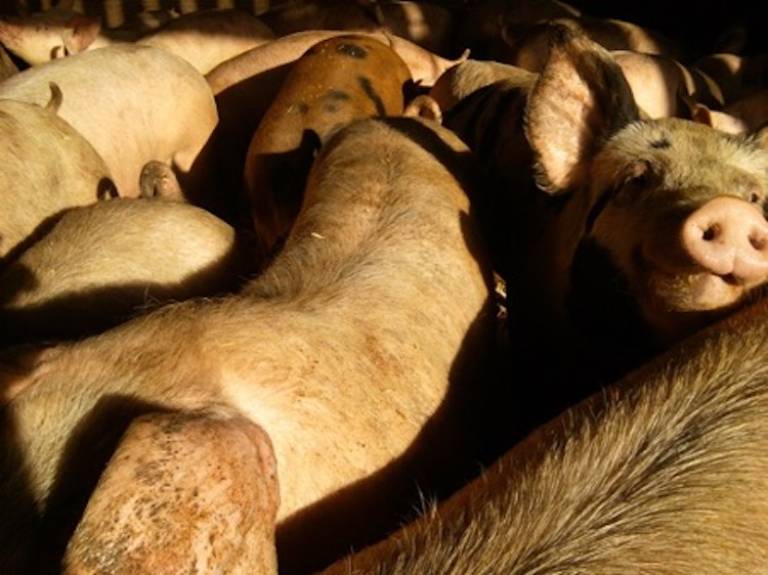Emergence and diversification of a zoonotic pathogen in pig farms
23 October 2023
Study finds evidence that farming practices could have helped a bacteria that is a common member of the pig microbiome to become an important cause of disease in both pigs and people.

A recent publication in PNAS highlights how livestock farming practices could be promoting the emergence of pathogens that are capable of causing disease in both livestock and people. While modern farming practices are likely to protect us against certain forms of pathogen emergence, the results of this study reveal how they could have helped a member of the pig microbiome to evolve to become more likely to cause disease.
Streptococcus suis is a major cause of disease and one of the biggest drivers of antibiotic use on pig farms around the world. In addition to causing disease in pigs, this bacteria can cause meningitis in people who have close contact with pigs or who consume raw or undercooked pork products. The study, led by researchers from University College London and the University of Cambridge together with an international team of researchers from three continents, asked how and why some strains of the bacteria Streptococcus suis have evolved to cause disease.
The researchers sequenced the genomes of Streptococcus suis sampled from the tonsils of healthy pigs and the sites of infection in pigs with Streptococcus suis disease. These were collected from pigs from countries in North America, Europe and Asia, and put together with genomes sequenced by previous studies.
Through analysing this large collection of genome sequences, the authors found that several pathogenic strains of Streptococcus suis have emerged over the last two hundred years and repeatedly spread around the world. Such rapid spread is likely to have only been made possible by the long distance transport of pigs around the world for breeding purposes.
The researchers also found evidence that in order for a new pathogenic strain to emerge it needs to acquire DNA from a pre-existing pathogenic strain. “As the likelihood of these DNA transfers are increased by the spread of pathogenic strains through pig farms around the world, long distance transport of pigs could have both helped the spread of existing pathogenic strains and the emergence of new pathogenic strains”, explains lead author Dr Gemma Murray.
The authors warn that this process is likely to be ongoing. “Controlling the spread of pathogenic strains of Streptococcus suis through pig populations should be a priority to limit the future impact of this pathogen on food security and public health”, suggests senior author Dr Lucy Weinert.
Further Information:
- Link to paper in PNAS: The emergence and diversification of a zoonotic pathogen from within the microbiota of intensively farmed pigs (Nov 2023)
- UCL Research Department of Genetics, Evolution and Environment
- Dr Gemma Murray
- Dr Lucy Weinert
 Close
Close

